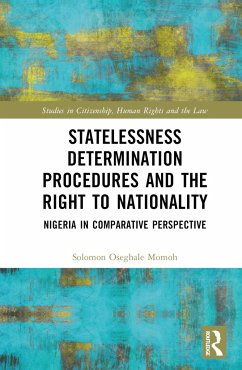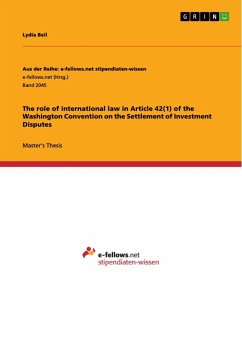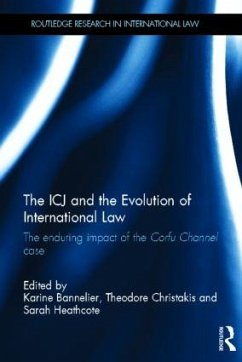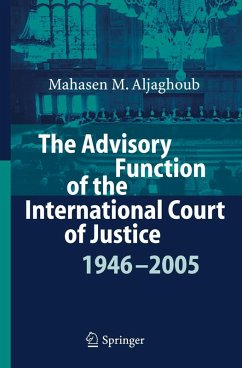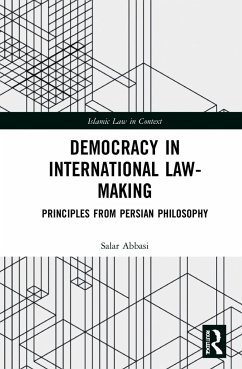
The Role of the ICJ in the Settlement of International Disputes
The Bakassi Dispute: Cameroon v. Nigeria
Versandkostenfrei!
Versandfertig in 6-10 Tagen
47,99 €
inkl. MwSt.

PAYBACK Punkte
24 °P sammeln!
The case between Cameroon and Nigeria over the Bakassi Peninsula (the Bakassi Case)is used as a case study in order to aver the role of the International Court of Justice (ICJ) in the settlement of international disputes. The foundation of this study is the theory of perpetual peace. This theory runs throughout the work. This work assesses the effectiveness of the ICJ in resolving international disputes using decided cases and compliance record. The ICJ's role in dispute settlement is not a 'bed of roses'. The impediments to the effective functioning of the Court are attributed to the problem ...
The case between Cameroon and Nigeria over the Bakassi Peninsula (the Bakassi Case)is used as a case study in order to aver the role of the International Court of Justice (ICJ) in the settlement of international disputes. The foundation of this study is the theory of perpetual peace. This theory runs throughout the work. This work assesses the effectiveness of the ICJ in resolving international disputes using decided cases and compliance record. The ICJ's role in dispute settlement is not a 'bed of roses'. The impediments to the effective functioning of the Court are attributed to the problem of jurisdiction and the relationship which the ICJ has with the Security Council of the United Nations regarding the enforcement of the judgments of the ICJ. This book analyses the ICJ judgment in the Bakassi Case by evaluating the claims and arguments of the parties to the Bakassi Dispute.




